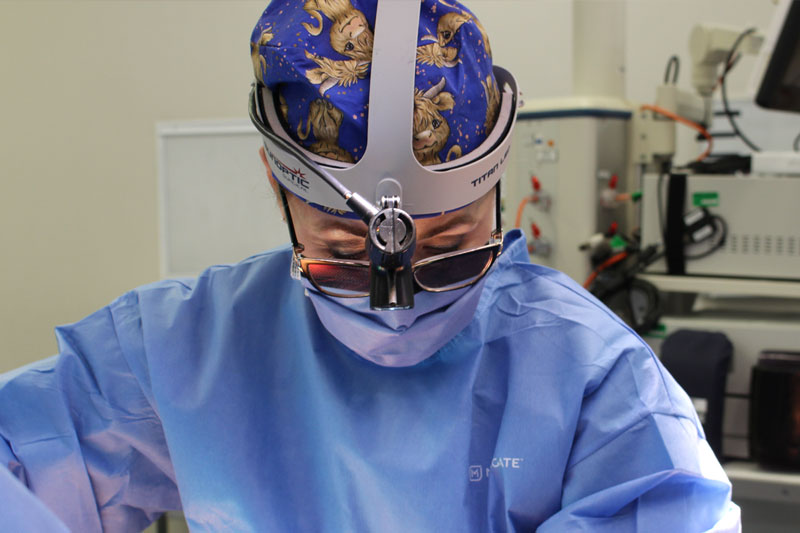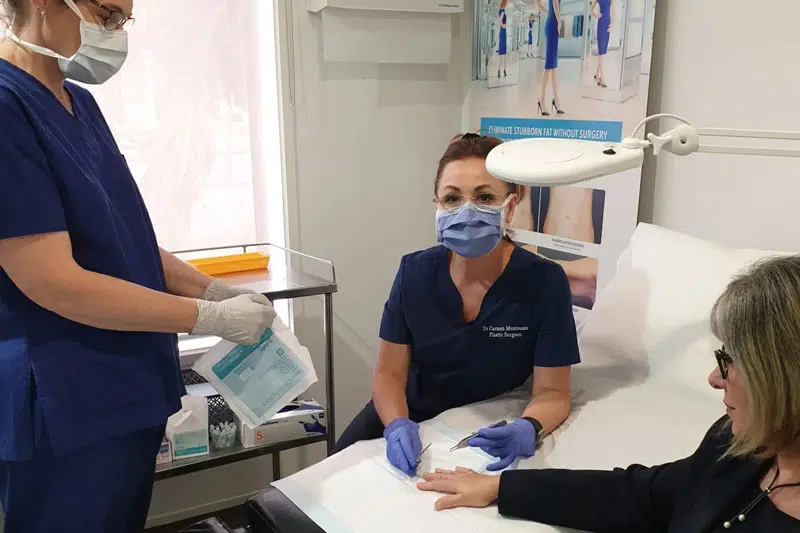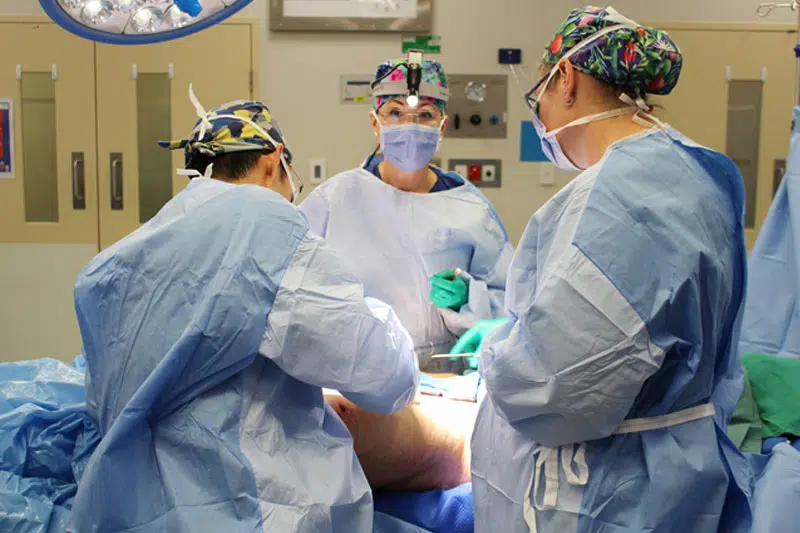Preparing for Surgery – Tips to get ready for surgery in Hospital
Taking steps to prepare for surgery can play an important part in your recovery. Dr Carmen and her team are available to provide information and support throughout the process.
Maintaining a stable, suitable weight prior to surgery can help reduce certain risks and complications. Dr Carmen may discuss general health and strategies during your consultation, including advice about diet and lifestyle.
If you would like to know more about preparing for your surgery, please speak with Dr Carmen and the team.
10 Specific Patient Instructions to Follow When Preparing for Surgery
- All piercings must be removed prior to the procedure. If you have a particular piercing that you cannot remove, please notify the hospital and the rooms prior to your surgery day.
- Avoid getting any kind of tattoo (including eyebrow microblading) within 2 weeks prior to surgery to reduce the risk of pre-operative infection.
- You will need at least 1 finger or toenail for heart monitoring. Please ask your specific hospital if you need to remove ALL false nails or polish before the day. Just One finger may be enough.
- Have a shower the morning of surgery and make sure your hair is clean. It may be several days before your hair can be washed if you are booked for complex surgery.
- Hair extensions with any kind of metal fastening must be removed prior to surgery (typically beaded or “clip-in” varieties). Make sure that you have removed any pins or hairclips and that any elastic hair tie (if used) does not contain any metal.
- Read all your pre-admission paperwork and make sure you are aware of arrival time, fasting and any medication requirements.
- Know your length of stay and plan for your discharge destination and likely pickup person.
- Deal with any outstanding issues such as urgent bills or gifts for upcoming occasions. You will be resting quietly at home for several days or weeks following surgery. A little preplanning makes all the difference.
- Stock the pantry, fridge, and freezer with food. Make sure you have nutritious meals and snacks on hand. Make all the things you need regularly easily accessible.
- Plan for help and support, especially if you have dependents for your recovery phase. You range of motion and ability to do thing may be significantly impacted.
Want to know what to bring and how to pack for Hospital?
Read Dr Carmen’s Guide on what to pack for the hospital to ease your stay and aid your recovery.
Preparing for Surgery – How to Support Your Health and Recovery
Preparing for surgery is an important part of your overall journey. By making smart choices and taking care of your body in the lead-up to your procedure, you can help optimise your recovery and surgical outcome. Below are some tips and ideas to help you get ready for your surgery.
Below are some ideas and suggestions on preparing for your surgery, including some useful tips.
Preparing for surgery – Diet and Lifestyle Considerations
It’s important to support your health and wellbeing in the weeks before your surgery. Dr Carmen recommends focusing on good habits in the two weeks leading up to your procedure.
Fueling your body with protein-rich meals, fresh fruit, and vegetables provides important nutrients that support your body during the healing process.
Aim for regular light exercise such as walking for 30 minutes each day. If you already have an exercise routine, you may wish to increase it.
Smoking can affect your circulation and healing, so you’ll need to inform Dr Carmen of your smoking history and discuss the need to stop smoking before and after your surgery.
If you would like further information, please speak with Dr Carmen and the team.
Boosting Your Immune System
Some nutrients are particularly important for wound healing and immune support. Zinc, for example, plays a key role in tissue repair. You can get zinc from foods like eggs, seafood, nuts, seeds, whole grains, and fortified cereals. If you’re considering a multivitamin or supplements, always discuss this with your doctor or healthcare provider first.
How can I maintain optimal weight before surgery?
Achieving and maintaining a suitable weight before surgery is important for your safety and recovery. Carrying excess weight can increase the risk of complications, including delayed healing and wound issues. If you’re aiming for weight loss, focus on gradual, sustainable changes, such as:
- Eating balanced meals with plenty of vegetables, lean proteins, and whole grains.
- Avoiding processed foods, excess sugar, and unnecessary snacking.
- Staying active with regular walks or light exercise.
- Weighing yourself weekly in the morning, before eating or drinking, to monitor progress.
Dr Carmen and the team will provide support and guidance tailored to your needs.
Do I need to lose weight before having major cosmetic surgery?
It is important that you be close to your desired weight for six to twelve months before undergoing surgery especially surgeries that involve the removal of excess skin like Abdominoplasty, Breast Reduction and other Excess Skin Removal Surgeries. Weight fluctuations after these types of surgeries can negatively impact results.
Patients who have surgery when carrying excess weight have higher rates of delayed wound healing, wound breakdown and excessive scarring, all of which can compromise results.
If you are not yet at, or close to your desired weight Dr Carmen may suggest postponing surgery.
We guide and support you during your post-operative phase for as long as it takes but it is often more painful and frustrating if wounds are slow to heal.
Habits for Weight Management
If you’re aiming to lose weight before surgery:
- Plan meals in advance and focus on whole, fresh foods.
- Choose smaller, more frequent meals if helpful.
- Avoid mindless eating, set the table for meals, sit down, and enjoy your food.
- Drink water, herbal teas, or warm water instead of high surgar beverages.
- Read nutrition labels to understand what’s in your food.
These small steps can support long-term health and help prepare your body for surgery.
Preparing Your Family and Household
Planning ahead can help you prepare for the recovery process. Consider:
- Preparing and freezing nutritious meals in advance.
- Setting small family goals, like movie nights or cooking together.
- Organising your living space to reduce clutter.
- Teaching children tasks, like tidying their rooms or preparing basic meals.
- Reviewing your budget and cancelling unnecessary subscriptions.
These steps can help make a supportive environment for your recovery.
Staying Active Before Surgery
Think of surgery as a challenge that your body needs to be ready for, like training for a marathon. Increasing your daily activity can help build strength and stamina, which may aid your recovery.
- Aim for at least 30 minutes of walking each day, and try adding an extra walk when possible.
- Get creative at home: use household items like tinned food as weights, try stretching or yoga, or follow an online exercise video.
- Find activities that support your wellbeing, such as gardening, cycling, or playing with pets.
A little bit of effort can make a huge difference but if your usual level of fitness is higher try to get back to that. Also, you have to consider that post your surgery it will be some time before you will be able to go back to your previous exercise tolerance.
Some other ideas:
- Avoid sitting and surfing the net for long periods of time and avoid online shopping. Instead, take the time to clear excess items and getting prepared for your upcoming surgery.
- Give your dog (or neighbour’s dog) 2 walks a day.
- Dust off your bike and go for a ride on nice days.
What type of exercise can I do at Home?
Everyone can exercise at home, if you need inspiration or motivation, call on the family to join you for your walk, bike ride or YouTube exercise video.
Look for exercise items withing the home, skipping ropes, tinned cans for light weights, arm lifts using the seat of a chair, outdoor steps or stairs for stepping exercises. High and low tables for stretching exercises.
- Find a YouTube exercise video you like and stick to it
- Add 5 minutes extra fitness training to your daily routine.
- Yoga is also a good way to increase strength, mobility and mindfulness.
- Remember to work on your core strength too as post-surgery you will be restricted from most forms of exercise until fully recovered.
Preparing for Recovery
Recovery is a team effort. Involving your family or support network in household tasks, like cooking, cleaning and childcare, can make a big difference once you’re home after surgery. Teaching children age-appropriate tasks before surgery can build their independence and ease your workload during recovery.
Remember, preparing both your body and your environment can help with the transition and support your healing journey.
We’re Here to Support You
Dr Carmen and the team are here to guide you through every step of your surgical journey. If you have any questions or would like to discuss your preparation plan, please don’t hesitate to contact us. Our team is here to support you.
Further Reading with Dr Carmen
- Read Dr Carmen’s Blog about Recovery after Surgery – Dr Carmen Munteanu
- Read Dr Carmen’s Blog about Compression Garments for Plastic Surgery – Dr Carmen Munteanu
- Read Dr Carmen’s Blog about Smoking and Surgery: Impact of Smoking & Vaping on Your Results
- Read Dr Carmen’s Blog about Preparing for Surgery – Patient Instructions – Dr Carmen Munteanu








